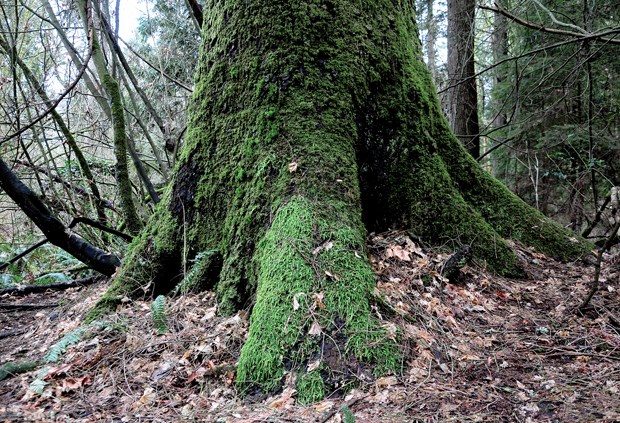The end of another year has arrived and while most people like to look back to review their year in the garden, I prefer to look forward.
The path forward to a more sustainable, caring and regenerative way of gardening and farming is a challenging one. Sustainable progress is being actively blocked by big "C" conservative, profit-driven, selfimportant dinosaurs of the last century whom largely control today's gardening and farming industries. And those people are poisoning our food supply and gardens by pushing all manner of toxic pesticides and genetically modified organisms as the gospel of modern technological salvation.
Fortunately for my children, there is much hope for the future. Divine editorial intervention from diva and divas alike, is helping us to find the way forward. We should listen to their call for a "regenerative" approach to gardening and farming. It may be hard to tell the difference between soothsayers who predict future trends as a guise to selling product, versus those people with a triple bottom line and sustainable solutions. As I have done for the past decade of writing Dig Deep, I have worked to dispel the myths of the machine while providing alternative solutions.
So to help guide your gardening and food growing in the coming year, here are a few suggestions for transitioning your garden to a healthier and more environmentally friendly way of gardening in 2016.
Choose real solutions not fantasy
As an example, over the years many clients have asked me to supply a tree or shrub that will grow quickly to 10 feet tall then stop growing. And the plant shouldn't require maintenance and it should be resistant to pests and disease. And it must simultaneously block out the neighbour's keyhole view of their yard. No such plant exists. Sorry, my mistake, there is one - a 10-foot-tall plastic tree.
Solutions have to be well thought out and a large part of the equation is that clients must be educated about the realities and limitations of plant selection. In my view, the primary responsibility of any good landscape contractor is to use their expertise to offer solutions, not just monkeydo the job. Choose intelligent, creative and experienced contractors that can offer sustainable solutions. Choose longterm solutions, not just quick fixes. And remember that it is cheaper to bend your will than your wallet.
Change your perception of cleanliness
We need to let go of the mentality of last century that dictated cleanliness in the garden. The raked-clean beds and highly manicured lawns of today are the denuded landscapes of the future. Cleanliness is fine in the kitchen but not in the garden. There is a huge amount of biomass in the form of fallen leaves and lawn clippings collected by landscapers every day that are trucked to the transfer station. The carbon footprint, financial cost to society and environmental impact of such operations is damaging our wallets and the planet. The solution is to leave fallen leaves to act as nutrientrich mulch. If fallen leaves offend your sense of presentation, then mulch overtop of the leaves.
When it comes to lawns, use a rototiller. Seriously though, use a mulching mower and leave the grass clippings on the lawn as a recyclable food source that enriches the lawn, and save the cost of disposal and fertilizer.
Think regeneration not eradication
Poisonous pesticides have universally permeated our gardens, farms and food supply over the last 60 years. Consider that pesticides are now being sprayed worldwide in amounts measured by the millions of metric tonnes (one tonne of pesticide equals 2,200 pounds equals thousands of Big-Ag profit dollars).
We are now seeing population declines of insects, fungi, bacteria and other beneficial organisms in the soils on farms and gardens around the world that have been sprayed with poisonous pesticides and herbicides. The solution is to use nature's own cycles, systems and biomass to feed fungi, bacteria and other soil life to enhance plant health and simultaneously lower disposal costs. It's the same philosophy people use to fend off disease - eat a healthy diet, not a poisonous diet. For example, one inch of animal manure or compost applied as mulch on planting beds or veggie gardens can regenerate soil life while improving soil fertility, water retention, nutrient cycling and plant health. Those are benefits that no pesticide or fertilizer can claim. Inform yourself about the real truth and consequences of feeding your garden a poisonous diet versus a healthy diet.
And lastly, success in gardening and farming is all about intellect and technique, not just technology or products. Seek growing information from unbiased, reputable sources to help guide you forward. Try to consider people, the planet and profits in your gardening and farming decisions. And express your own style because individuality is the genesis of creativity.
Todd Major is a journeyman horticulturist, garden designer and builder, teacher and organic advocate. [email protected]



